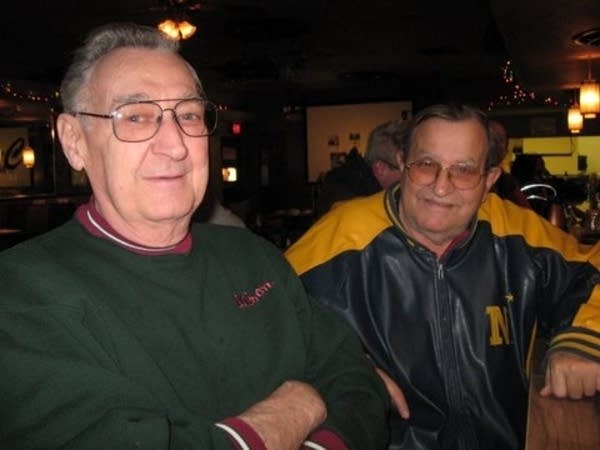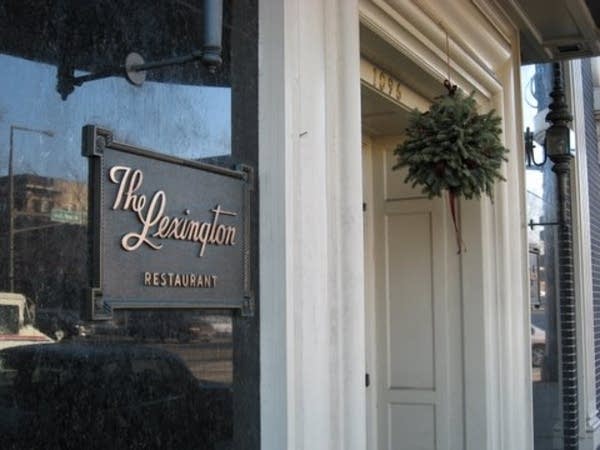New campaign hopes to rebrand the Twin Cities

The way Karyn Gruenberg sees it, one of the first things the Twin Cities ought to do is stop calling itself the Twin Cities. She said a lot of people who aren't from here mistake the Twin Cities for Dallas-Fort Worth, Texas, or even Fargo, N.D., and Moorhead, Minn..
"What the brand company came up with is, our brand is Minneapolis, our brand product is St. Paul. It's not the Twin Cities, so we have to do away with it," said Gruenberg.

Gruenberg is Vice President of Meet Minneapolis, the city's convention and visitors group. She's one of the main players behind the new initiative called "Minneapolis Saint Paul, More to Life." Besides dumping the Twin Cities nickname, she wants the two communities to think of themselves as a single entity.
The strategy is part of a broader plan to make the area more competitive in recruiting young, talented workers. She said it is a pressing concern for some Minnesota companies, especially as baby boomers retire.
Create a More Connected Minnesota
MPR News is your trusted resource for the news you need. With your support, MPR News brings accessible, courageous journalism and authentic conversation to everyone - free of paywalls and barriers. Your gift makes a difference.
Nearly three years ago, Gruenberg's organization hired a New York firm to survey outsiders' perceptions of the area. Half of the people who had no connection to the Twin Cities said there was no reason to visit.
On a long list of favorite cities, Minneapolis came in second to last above Cincinnati.
Yet, people who were familiar with Minneapolis-St. Paul loved it. They ranked the cities third, below only San Francisco and Seattle.
But asking longtime St. Paulites to associate themselves with folks across the river will be tricky. At the Tin Cup on Rice Street in St. Paul, old friends Ron Mickus and Don Eddy have been sidling up to the bar for a decent chunk of their 70 or so years.
"Where are you from?"
"I'm from St. Paul," said Ron.
"How do feel about calling it Minneapolis-St. Paul from now on?"
"I'm not too much in favor of calling it Minneapolis-St. Paul. I don't like the name Minneapolis," Ron explained.
"I don't even go over there," Don said.
"Why's that?"
"Two reasons. I get lost is one reason. The second reason is I don't want to get beat up over there. So I stay home," said Don.
Mickus and Eddy are supposed to be the foot soldiers in this marketing war. Gruenberg says the residents wield far more power than traditional advertising.
"The local community are our brand champions. They're the walking, talking advertisements. If they don't understand what the branding and the message and what it is we have to offer, then the outside world won't understand it," said Gruenberg.
Work on the campaign began long before Minneapolis-St. Paul bid to host the Republican National Convention. But now that 15,000 members of media are expected to flock here for the event in September, the marketing effort seems more imperative than ever.
Gruenberg says companies like 3M, Target, and General Mills have contributed nearly $2.5 million for the effort. Many public relations and advertising firms are working on the branding campaign for free.
Gruenberg says while the cameras are in town, residents should promote the area's culture, creativity and abundance of lakes. And they should quit playing up the weather and how hardy they are.
"Complain about the weather, that's all we've got to talk about," said Kent, a gray-haired man sipping his vodka at the dimly lit Lexington Restaurant on Grand Avenue.
"Weather is a constant. It's hot, it's cold, it's an ice breaker, no pun intended," Kent explained.
Getting people to visit the area is one thing. Getting them to stay is another.
Minnesotans are polite, but Gruenberg says they don't allow newcomers into their social circles. She cites one study that says it takes about four years for recent transplants to feel like they're part of the community. Her solution? Ask that new person from Texas or New York to come to your house for dinner.
At the Tin Cup, Ron Mickus and Don Eddy say that will take some work:
"It's hard to invite someone you first meet," said Don.
"You got to know 'em first for a little bit. I wouldn't just say, come on over," explained Ron.
The brand champions of St. Paul apparently haven't gotten the script yet.
